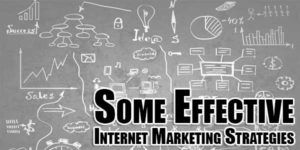
Employing the right software tools is crucial for maximizing efficiency and fostering growth in the competitive landscape of small businesses. Software solutions provide the foundation for streamlined operations, from managing finances to enhancing customer interactions. This article delves into essential software categories that small businesses should consider, focusing on accounting, project management, customer relationship management (CRM), marketing, and credit card processing software.
Table of Contents
Accounting Software:
Accounting software is indispensable for small businesses, providing a streamlined solution for managing financial records. It simplifies complex tasks like bookkeeping, financial reporting, and tax compliance.
- Efficiency: This system automates routine transactions, effectively tracks expenses in real time, and generates comprehensive financial statements. By doing so, it significantly reduces the potential for human error, which can often occur in manual processes.
- Strategic Insights: Offers comprehensive financial overviews that provide detailed insights into revenue, expenses, and cash flow, enabling business owners to make informed decisions based on accurate data. By analyzing key performance indicators and trends, these overviews help identify areas for improvement and growth, ensuring that entrepreneurs can strategically plan for the future.
Project Management Software:
Project management software serves as a central hub for organizing and tracking a diverse range of projects, streamlining communication among team members and stakeholders.
- Collaboration: Facilitates effective teamwork by providing shared platforms that enhance communication, streamline task assignments, and enable efficient deadline tracking. These tools create a collaborative environment where team members can easily share ideas, monitor progress, and ensure that everyone is aligned with project goals.
- Resource Management: Assists in the effective allocation of resources by analyzing project needs and team capabilities, helping to prevent bottlenecks that can slow down progress and enhance overall productivity.
Customer Relationship Management (CRM) Software:
CRM software is essential for managing customer interactions and streamlining sales processes, fostering stronger customer relations.
- Personalized Service: Centralized customer data, enabling personalized communication and improving customer service.
- Sales Optimization: Enhances sales processes through better tracking of customer interactions and opportunities, leading to increased conversion rates.
Marketing Software:
Marketing software automates and optimizes marketing efforts across various channels, helping businesses reach and engage their target audience effectively.
- Time-Saving Automation: Automates repetitive marketing tasks, such as email campaigns and social media posting, freeing up valuable time for strategizing and creative development.
- Data-Driven Decisions: The tool provides valuable insights into campaign performance, enabling marketers to identify key trends and areas for improvement. This data-driven approach facilitates timely adjustments and enhancements, ultimately leading to better results and a greater return on investment.

Credit Card Processing Software:
In an increasingly cashless economy, credit card processing software is vital for enabling secure and efficient transactions.
- Customer Convenience: Offering multiple payment options enhances customer satisfaction by accommodating various preferences and broadens the customer base by making it easier for individuals from different backgrounds to make purchases.
- Security Compliance: Ensures that all transactions meet stringent industry security standards, effectively protecting both business and customer data from potential fraud..
How These Tools Drive Business Success
The integration of these software solutions into a small business’s operations can significantly enhance its success and sustainability. By automating mundane tasks, businesses can redirect resources towards strategic growth and innovation.
Improving Customer Satisfaction:
Beyond operational efficiency, these tools play a crucial role in enhancing customer satisfaction. CRM and marketing software provide insights and capabilities that help tailor customer interactions, boosting loyalty and retention. Meanwhile, credit card processing software ensures seamless and secure transactions, an essential factor in maintaining customer trust.
Enabling Data-Driven Strategies:
Access to detailed data and analytics through these software solutions empowers businesses to adopt data-driven strategies. This capability helps in understanding market trends, customer preferences, and operational efficiencies, all of which are critical for informed decision-making and strategic planning.
Incorporating the right software solutions is no longer a luxury but a necessity for small business success. By investing in accounting, project management, CRM, marketing, and credit card processing software, businesses can streamline their operations, enhance customer experiences, and drive growth. These tools provide the agility needed to adapt to market changes and the insights required to stay ahead of the competition. Embracing technology is not just about keeping up; it’s about leading the way in a rapidly evolving business environment.

 About the Author:
About the Author:
















Be the first to write a comment.